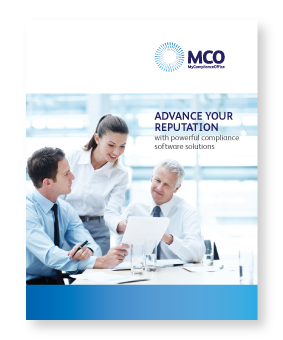Delivering Value to the Business
You can download a full copy of the slides from this webinar.
Full transcript available below:
Hello, everyone, and welcome to today's webinar hosted by me, Joe Boyhan, of MCO and third-party risk expert and president of ONTALA Linda Tuck Chapman.
Okay and that really leads me to an overall conclusion, which is really you really need to think about the business benefits and whether or not you can produce reporting and insight for the business, and for the risk managers, and for operational risk, and for the risk specialist, and for your senior management, and for the board that allows them to understand the relationships that are most important. Why? Why they're risky or why they're running smoothly. Basically, if you can find a way to introduce reporting that can help them see on these different dimensions, so which relationships are in scope and why. What risks are you facing?
|
If you design your program in such a way that you can actually produce some reporting that will go to risk specialist so that they can look at the portfolio risk that they're facing and be able to fine tune and drill down on individual business units or individual relationships or groups of relationships or types, that will be of high value to them. From a business perspective, I know the first time I've ever ... Certainly, I've done this a number of times. If you're starting to produce really good reporting, it's going to make people a little bit nervous because sometimes they'll encounter risk that they didn't know that were there, but it's really helpful for the business to know that there are things that can be done through deal structuring or through changing some of the services in order to reduce the risk. |
||
|
Some businesses have actually some fin techs and some financial services companies have made the risk profile and living within the risk appetite of the organization part of overall compensation for senior management. These are things to nail it down. The cost side of things that's not necessarily a risk. I mean, people think it is, I guess, because you're spending a lot of money, sometimes millions and millions with your third party or they're handling millions and millions. The cost of doing business with them is not in itself a risk, but what actually is of interest to them is it's part of running your business. The lens you want to put on it is I'm going to tell you about all the third parties that matter, and if you can give them information on cost, who they're doing business with, and where the costs are going. |
||
|
My personal experience in dealing with senior management running businesses it makes for a much better conversation because it helps them understand the cost of doing business and if there are any options or whether or not they want to continue doing business with certain providers. The performance without a good third-party management program, the performance of service providers and third parties is actually going to be known to some degree in the business or maybe not really much at all. My experience is that when you start to look at performance. When you implement a program, you're going to find that most people say, "Yeah. Everything's fine." Or you're going to get that phone call that says, "Gosh, we're really having some problems. We need you to get involved and sort things out." |
||
|
What you really want to know is you spend a lot of time putting these relationships in place. You negotiate a contract and are you getting what you paid for? Are you getting what you except? Are things going in the right direction? Last, but not least, a way to capture and describe the value at the all-company level and at the relationship level helps provide a much more business-focused lens on things. That really is what it should be all about as opposed to just focusing on risk or compliance.
This webinar was co-hosted with Linda Tuck Chapman of Ontala Performance Solutions. |


